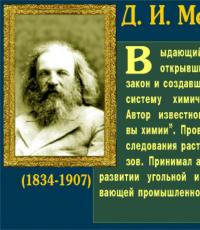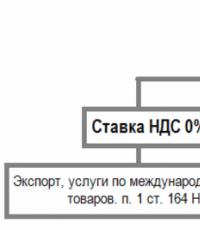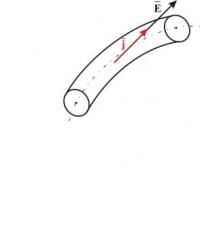Задания на отработку местоимений в английском языке. Притяжательные местоимения в английском
Pronouns.
Упр. 1.1. Вставьте подходящие по смыслу личные местоимения.
1. Ben is a little boy. … is six.
2. Jane is a house-wife ( домохозяйка ). … is lazy ( ленивая ).
3. Max is a soldier. … is brave.
4. Lily is a young woman. … is very beautiful.
5. Alice is late. … is in a traffic jam (в дорожной пробке ).
6. Nick and Ann are far from Moscow. … are on a farm.
7. This is Ben"s room. … is nice.
8. These are new books. … are interesting.
9. This is Elsa. … is a student.
10. Nick and Max are students. … are students of a Moscow university.
11. The rooms are small but … are light and warm.
12. The new flat is comfortable but … is far from the university.
13. Jack has many French books. … likes to read French very much.
14. Hans is a new student. … is German.
15. Alice and Jane are new secretaries. … are not lazy.
Упр. 1.2. Вставьте соответствующие личные местоимения в предлагаемых ответах на вопросы.
1. Is your house new? – Yes, … is.
2. Are the students at the English lesson now? - Yes, ... are.
3. Is your university in Green Street? – Yes, … is.
4. Are Helen and Bess your sisters? – Yes, … are.
5. Is Ben"s sister an engineer? – Yes, … is.
6. Are the pencils red? – No, … are not.
7. Is this room comfortable? - No, … isn"t.
8. Are the textbooks on the shelf? - Yes, ... are.
9. Does the girl often visit the museum? – No, … doesn"t.
10. Does this pen write well? – Yes, ... does.
11. Is Ben on holiday now? – No, … isn"t.
12. Is Helen nice? - Yes, … is.
13. Are you an engineer? - Yes, … am.
Упр. 1.3. Замените выделенные слова личными местоимениями в объектном падеже.
1. I like Nick .
2. We like Bess.
3. He likes ice-cream .
4. Can you show the pictures to Ben ?
5. You can tell Helen my e-mail address.
6. Are you interested in football ?
7. I want to buy two bottles of milk for Bess .
8. Do you want to play tennis with Ben ?
9. We must speak to Nick .
10. You should invite Helen and Bess to your house for dinner.
11. Do you know Mary ?
12. Tell Nick about your plan .
13. I see my friends every day.
Упр. 1.4. Вставьте подходящие по смыслу личные местоимения в объектном падеже.
1. Where is Nick? I want to play tennis with … .
2. Bess is here. Do you want to speak to … ?
3. My sister speaks French. She learns … at school.
4. Look at that man. Do you know … ?
5. Do you want to read this newspaper? I can give … to … .
6. If you see Ben and Bess, please, don"t tell … anything.
7. We want to phone Helen and invite … to the party.
Упр. 1.5. Замените выделенные слова личными местоимениями в именительном или объектном падеже.
1. The vase is on the table.
2. Mother often sends Ben to buy milk.
3. Are Bess and Helen ready to do the work ?
4. Nick and Ben spend their holidays at the seaside.
5. The man is in the park.
6. The managers are not at work now.
7 . Helen and I are good friends.
8. Is Ben at the lesson now?
9. Where is the calculator ?
10. The newspapers are on the table.
11. The child is in the garden with his mother.
12. Our parents are always glad to see us.
13. My brother and I are good football players.
14. Bess knows Ben.
15. I see the picture very well.
16. The students have lectures every day.
17. The boy plays football every Sunday.
18. The teacher asks the students .
19. The students write tests every week.
20. Look at the picture !
21. I have the book at home.
22. Max wants to speak to Helen.
Упр. 1.6. Замените выделенные слова притяжательными местоимениями.
1. This is Ben"s room.
2. This is Helen"s hat.
3. Here is my parents" house.
4. Nick"s mother is an economist.
5. Where is my brother"s bag?
6. I like Helen"s car.
7 . Ann"s books are on the table.
8 This student"s sister is my friend.
9. My sister"s house is not far from Ben"s house.
10. Where is the children"s room?
11. Ann"s brothers study at the university.
12. These boys’ fathers don"t work at the factory.
13. Here is my sister’s flat.
Упр . 1.7. Вставьте притяжательные местоимения .
1. Is your bag new? - Yes, … bag is new .
2. I like … hat, Ann.
3. Don"t plant this tree! … branch is broken.
4. Max, you have a new job. Do you like … new job?
5. … friends always tell me everything.
6. Our dog likes to run after ... tail.
Упр. 1.8. Измените следующие предложения по образцу, употребляя абсолютную форму притяжательных местоимений.
Образец :
This car is my car.
This car is mine.
1. This calculator is my calculator.
2. Is this bicycle your bicycle?
3. These hats are her hats.
4. This room is their room.
5. This dog is our dog.
6. My flat is more comfortable than your flat.
7. Our house is near their house.
8. Which of the dictionaries is your dictionary?
9. Is this book his book?
10. Whose cat is this? Is it her cat or his cat?
Упр. 1.9. Выберите подходящее притяжательное местоимение.
2. This is our car. It is (our, ours).
3. These are Mary"s books. They are (her, hers).
4. White is (my, mine) favourite colour.
5. You can"t have this book. It is not (your, yours).
6. (Her, Hers) house is big.
7. Is this (your, yours) coat? - No, it is not (my, mine).
8. Are these your friends" books? - Yes, they are (their, theirs).
9. That is (our, ours) house. It is (our, ours).
Упр. 1.1 0 . Измените предложения по образцу, употребляя указательные местоимения во множественном числе. Сделайте другие необходимые изменения.
Образец:
This girl is a student.
These girls are students.
That boy is brave.
Those boys are brave.
1. This book is French.
2. This girl is in the garden.
3. That map is old.
4. This student is from Great Britain.
5. That flower is beautiful.
6. This is my bag.
7. This is a French text.
8. That room is nice.
9. This film is interesting.
Личные местоимения в английском языке встречаются в двух падежах – именительном (nominative case) и объектном (objective case). В данной статье Вы познакомитесь и с теми, и с другими, посмотрите таблицы и выполните упражнения на личные местоимения. Поговорим вначале о личных местоимениях в nominative case – именительном падеже.
Personal pronouns in nominative case.
Рассмотрим таблицу:
Вроде бы, все просто, но давайте сделаем некоторые уточнения.
- Роль в предложении.
Личные местоимения в nominative case в английском чаще всего выполняют роль подлежащего :
She lives in Bristol. – Она живет в Бристоле
I am not scared. – Я не напугана.
Следует также отметить, что personal pronouns в именительном падеже могут выступать в роли именного сказуемого :
It was she who did it. – Это была она, кто сделал это.
В подобных случаях в более неформальной речи допустимо использование местоимений в объектном падеже:
It was her , who did it.
- Род личных местоимений.
Некоторые личные местоимения отчетливо указывают на род. Это местоимения he - мужской род (одушевленное) и she - женский род (неодушевленные). Местоимение it употребляется вместо всех неодушевленных предметов, а также животных и слова baby (младенец).
Molly sees a cat. It is black. – Молли видит кота. Он черный.
Where is the baby. It’s with me. – Где ребенок? Он со мной.
В некоторых случаях многие предметы могут одушевляться (особенно в художественной литературе) и заменяться на she и he. Подробнее читайте в статье про в английском языке.
- Местоимения I и you.
Местоимение I всегда пишется с большой буквы независимо от места в предложении.
Вы, должно быть, заметили, что местоимение you переводится как ты и вы и всегда имеет форму множественного числа. На самом деле, местоимения ты в современном английском языке нет. Раньше оно было и звучало как thou . Сегодня подобную форму можно встретить разве что в стихах. Запомните: в английском ко всем принять обращаться на вы и использовать при этом местоимение you, имеющее множественное число.
You are a good boy. – Ты хороший мальчик.
Заметьте: после you стоит глагол во множественном числе – you are.
Похоже, про личные местоимения в именительном падеже я сказала все, давайте выполним несколько упражнений на закрепление. Ответы Вы найдете в конце статьи.
Упражнения на личные местоимения he, she, it и пр.
Упражнение 1. Какими личными местоимениями можно заменить следующие существительные? Заполните таблицу.
Kate, my parents, auntie, Jacob, car, sister, cousins, two chairs, chair, the Queen, Ann, brother, uncle, Bill, cat, table, my father, my house, cars, balls.
Упражнение 2. Add he, she, it, we, or they
- Molly is very nice. _____"s my best friend.
- Molly and I aren"t English. ______"re from Sydney.
- Greg is my brother. ______"s 25 years old.
- Greg and Alison are married. _______"ve got two children.
- Emily is 22 years old. ______"s a nurse in
Упражнение 3. Write in he, she or they.
- This is Maria. _____ is having lunch in the canteen.
- Look at the children! _____ are playing football in the snow!
- Vanya is my friend. ______ is riding a bike now.
- Look at Pavel"s parents. _________ are reading a book.
- Lisa is Pavel"s friend. Listen! ______ is singing!
Личные местоимения в объектном падеже (Objective Case).
Объектный падеж английских местоимений соответствует косвенным падежам русского языка. Рассмотрите таблицу.

Несколько примеров:
Ask him to stay for dinner. – Попроси его остаться к обеду.
Give him a pen. – Дай ему ручку.
Don"t speak about him like this. – Не говори о нем так!
This was done by him . – Это было сделано им.
Сложностей в использовании объектного падежа местоимений у Вас возникнуть не должно. Единственный момент – использование I и me.
I или me?
Обычно данные местоимения используются в соответствии с правилами: I в именительном падеже, me – во всех остальных.
I give you a present. – Я дарю тебе подарок.
You give me a present. – Ты даришь мне подарок.
- Однако, если I стоит в именительном падеже и играет роль сказуемого – здесь возможны оба варианта.
It"s I / It’s me – Это я!
Первый вариант более книжный, второй – разговорный.
- В структурах сравнения также можно использовать и I, и me:
Molly is as old as I / as old as me.
Molly is older than I /than me.
- В кратких ответах используются оба местоимения.
- I или me после and?
Оба варианта возможны, хотя выражение you and I уже устарело, Вы будете выглядеть несколько консервативным, употребляя его. Впрочем, сударь (сударыня), eсли Вам угодно … употребляйте.
Упражнения на личные местоимения в объектном падеже.
Упражнение 4. Fill in the gap with the correct object pronoun. Заполните пропуски, используя личные местоимения в объектном падеже.
- Who is that lady? — Why are you looking at __________?
- Do you know that young handsome man?-Yes, I study with __________.
- Please, listen to _______. I want to express my point of view.
- These puppies are so nice! Do you want to look at ______.
- We like this house. We"re going to buy _________.
- He can"t see _______ because we are sitting in the last row.
- Where are the keys to our flat? I can"t find _______.
- Where is Ann? I want to talk to _________.
- This snake is poisonous. I"m very afraid of _______.
- Don"t wait for _______ for dinner. I"ll return very late at night.
- He left Polotsk long ago. I haven"t seen _______ since.
- You can fully rely on _______. We won"t let you down.
Упражнение 5. Fill in the gap with the correct object pronoun.
My husband and I are very lucky. We have many close friends in this city, and they are all interesting people.
Our friend Andrew is a scientist. We see (1) _____ when he isn"t busy in his laboratory. When we get together with (2) _____, he always tells (3) ______ about his new experiments. Andrew is a very close friend. We like (4) _______ very much.
Our friend Maggie is an actress. We see (5) _______, when she isn"t making a movie in Hollywood. When we get together with (6) _______, she always tells (7) ______ about her life in Hollywood. Maggie is a very close friend. We like (8) ______ very much.
Our friends Bobby and Marlin are journalists. We see (9) ______,when they are not traveling around the world. When we get together with (10) ______, they always tell (11) _____ about their meetings with famous people. Bobby and Marlin are very close friends. We like (12) ____ very much.
Упражнение 6. Fill in the suitable pronouns.
- Jack is hungry. Bring ________ a sandwich.
- Ann is ill. Take _______ these flowers.
- Fred and Jane are in the country. Write ________ a letter.
- I am thirsty. Bring _________ a bottle of Coca-Cola.
- Jimmy is in class. Give __________this book.
- The children are hungry. Bring ________ these red apples.
- Alan is at home. Ask ________ to come to the yard.
- We are at table. Give _______ tea and cakes.
Ответы:
Упражнение 1.
Упражнение 2.
1 she, 2 we, 3 he, 4 they, 5 she.
Упражнение 3.
1 she, 2 they, 3 he, 4 they, 5 she.
Упражнение 4
1 her, 2 him, 3 me, 4 them, 5 it, 6 us, 7 them, 8 her, 9 it, 10 me, 11 him, 12 us
Упражнение 5.
1 him, 2 him, 3 us, 4 him, 5 her, 6 her, 7 us, 8 her, 9 them, 10 them, 11 us, 12 them
Упражнение 6.
1 him, 2 her, 3 them, 4 me, 5 him, 6 them, 7 him, 8 us
1. Найдите в следующих предложениях все типы местоимений. Переведите предложения.
- 1. Lara found her purse. It was in our garden.
- 2. I have some free time to talk to you about their party.
- 3. The twins asked me to teach them roller-skating.
- 4. My mum devoted herself to us, her children.
- 5. I myself baked these cupcakes.
- 6. Don’t touch this ticket. It’s mine.
- 7. We saw her in that shop but she didn’t see us.
- 8. Does anybody love Chemistry in your class?
- 9. It’s not his car. It’s hers.
- 10. Nobody will read those books.
2. Поставьте подходящие возвратные местоимения (myself, yourself, yourselves, ourselves, himself, herself, itself, themselves).
1. The dog enjoyed … with the children. (Собака веселилась с детьми.)
2. He cut … while shaving in the bathroom. (Он порезался, когда брился в ванной.)
3. Did you hurt … ? (Ты поранился?)
4. She introduced … as Alice Brown. (Она представилась как Алиса Браун.)
5. Kids, it wasn’t your fault. Please don’t blame … . (Дети, это была не ваша вина. Не вините себя, пожалуйста.)
6. Your face is dirty. Look at … in the mirror. (Твое лицо грязное. Посмотри на себя в зеркало.)
7. I don’t like people who usually talk about … . (Не люблю людей, которые разговаривают обычно о самих себе.)
8. I am the winner and I’m proud of … . (Я победитель, и я горжусь собой.)
3. Выберите подходящие личные и притяжательные местоимения. Переведите.
1. Give … (my, me, mine) a glass of water.
2. Who is sitting behind … (our, we, us)?
3. Would you like to dance with … (he, him, his)?
4. Joanna is going to meet … (them, they, their).
5. It took … (he, him, his) 5 days to get to … (you, your).
6. Please help … (I, me, my) with … (me, my) homework.
7. This is … (me, my, I) cat. … (His, Her, Its) name is Tom.
8. She promised to help … (us, our, we) and she will keep … (she, her, he) word.
4. Выберите верный вариант местоимений и переведите получившиеся предложения.
1. Did you enjoy … (myself, yourself, your) at the party? – Well. Nick did. But … (I, my, me) didn’t have a good time. I didn’t know … (someone, nobody, anyone) there. There were a lot of people and there was … (anywhere, nowhere, somewhere) to sit. Fortunately there was much food, so I helped … (myself, himself, yourself).
2. … (What, Which, Who) of the two T-shirts do you like? — … (I, Me, My) like both of … (they, them, their). – And do you like … (this, these, that) jeans? – I think … (they, them, their) are awful.
3. I haven’t got … (some, any, no) sweets for the kids today. Have you got … (some, any, no) sweets? – Don’t worry. I’ve got … (some, any, no).
4. This is … (my, me, mine) garage. And the car is … (my, me, mine). That is … (our, ours, us) house. And the garden is … (our, ours, us).
5. … (This, These, That) two rings belong to … (him, his, he) grandmother.
Ответы:
1. her – It – our (Лара нашла свой кошелек. Он был в нашем саду.)
2. I – some – you – their (У меня есть немного свободного времени, чтобы поговорить с тобой об их вечеринке.)
3. me – them (Близнецы попросили меня научить их кататься на роликах.)
4. My – herself – us – her (Моя мама посвятила себя нам, своим детям.)
5. I — myself – these (Я сама испекла эти кексы.)
6. this – It – mine (Не трогайте этот билет. Он мой.)
7. We – her – that – she – us (Мы видели ее в том магазине, но она не видела нас.)
8. anybody – your (Кто-нибудь любит химию в твоем классе?)
9. It – his – hers (Это не его машина. Это ее.)
10. Nobody – those (Никто не будет читать те книги.)
1. itself
2. himself
3. yourself
4. herself
5. yourselves
6. yourself
7. themselves
8. myself
1. me (Дай мне стакан воды.)
2. us (Кто сидит позади нас?)
3. him (Ты хотела бы потанцевать с ним?)
4. them (Джоанна собирается их встретить.)
5. him – you (Ему потребовалось 5 дней, чтобы добраться до тебя.)
6. me – my (Пожалуйста, помоги мне с домашним заданием.)
7. my – Its (Это мой кот. Его зовут Том.)
8. us — her (Она обещала помочь нам, и она сдержит свое слово.)
1. yourself – I – anyone – nowhere – myself (Тебе понравилось на вечеринке? – Ну, Нику понравилось. А я провел время плохо. Я никого там не знал. Было много людей, и было негде сидеть. К счастью, было много еды, и я угощался.)
2. Which – I – them – these – they (Какая из двух футболок тебе нравится? – Мне нравятся обе. – А тебе нравятся эти джинсы? – Думаю, они ужасные.)
3. any – any – some (Сегодня у меня совсем нет конфет для детей. У тебя есть конфеты? – Не волнуйся. Есть немного.)
4. my – mine – our – ours (Это мой гараж. И машина моя. Там наш дом. И сад наш.)
5. These – his (Эти два кольца принадлежат его бабушке.)
ГБПОУ СО «ТПК»
Possessive Pronouns
Exercise 1
Fill the gaps with possessive pronouns.
Nick has got a dog. . . . dog is clever (умный).
Have you got a room? Is . . . room big?
Ann has a lamp. Is it ... lamp?
I have got a book. . . . book is interesting.
They have got a good room. Is . . . room big?
Exercise 2
Choose the correct possessive pronouns.
1. Is this (your / yours) book?
2. It"s (their / theirs) door, not (our / ours).
3. They"re new pupils and I don"t know (their / theirs) names.
4. (Му/ Mine) flаt is bigger than (her / hers), but(her /hers) is nicer.
5. That"s not (my / mine) book. (Му / Mine) is new.
6. They took (our / ours) books and we took (their / theirs).
7. Are these pencils (her / hers)?
8. Is this (your / yours) house or (their / theirs)?
Exercise 3
Choose the correct possessive pronouns.
Is this yours / your daughter?
It"s theirs / their problem, not our/ours.
Are these her / hers shoes?
We"re going swimming with some friends of our/ours.
Is it yours / your article about spiders? -No, it"s not my / mine.
We know their / theirs address but they don"t know our / ours.
That"s not my / mine wallet. Mine / my is black.
His cottage is bigger than her / hers but her / hers is nicer.
My / mine parents live in Samara region, and your / yours?
Exercise 4
Complete the sentences with correct possessive pronouns.
This is my mum. … name"s Jess.
These are my sisters. … names are Mary and Dina.
These are my parents. … names are Tanya and Bob
This is my cousin. … name"s Helen.
This is my cousin. … name"s Fred
These are my sisters. … names are Tina and Nina.
This is my aunt. name"s Pam.
Exercise 5
Complete the sentences with correct possessive pronouns.
It is my house. It is… .
It is his house. It is … .
It is their house. It is … .
It is her house. It is … .
It is our house. It is … .
It is your house. It is … .
Exercise 6
Insert the correct possessive pronouns.
She is doing … homework.
We have … English lesson in the evening.
He is putting on … rain-coat.
I often do … homework with … friend.
This lady’s surname is Smith. What’s … first name?
Please sit down. Is it … document?
They do … morning exercises in the open air.
This table is too small. What’s … length?
Exercise 7
Insert the correct possessive pronouns.
Nick: Whose sunglasses are these?
Mary They"re Amy"s, I think. Yes, they"re … .
Paul: Whose baseball cap is this?
Amy: That"s … too! Thanks.
Mary: Ugh! Whose dirty towel is this?
Nick: Ask Paul. I think it"s … .
Paul: Yes, it is. Thanks. You"ve got a great T-shirt, Amy!
Mary: Thanks. I borrowed it from my big sister. So it"s … really.
Nick: What about this umbrella?
Paul: Don"t be silly, Jason! You brought it, so it must be … .
Mary: Does this beach ball belong to us?
Nick: No, it isn"t … Those kids over there were looking for a ball, so it"s … probably.
Exercise 8
Choose the correct possessive pronouns.
1. Whose slippers are these? Are they … (my, mine) or … (your, yours)? – They are … (her, hers).
2. … (Our, Ours) car is cleaner than … (their, theirs).
3. Look at this girl. She is … (his, him) wife.
4. It’s not … (her, hers) lipstick. … (Her, hers) is darker.
5. … (My, Mine) life, … (my, mine) rules.
6. Was … (your, yours) trip exciting? - … (My, Mine) was boring.
7. Can I use … (their, theirs) hair-drier? - … (Our, Ours) is out of order.
8. Mrs. Novak is a friend of … (his, him).
9. Sometimes she waters … (my, mine) flowers and I water … (her, hers).
10. I remember the street but I don’t remember … (it, its, her, his) name.
Possessive Pronouns page 4 from 4




